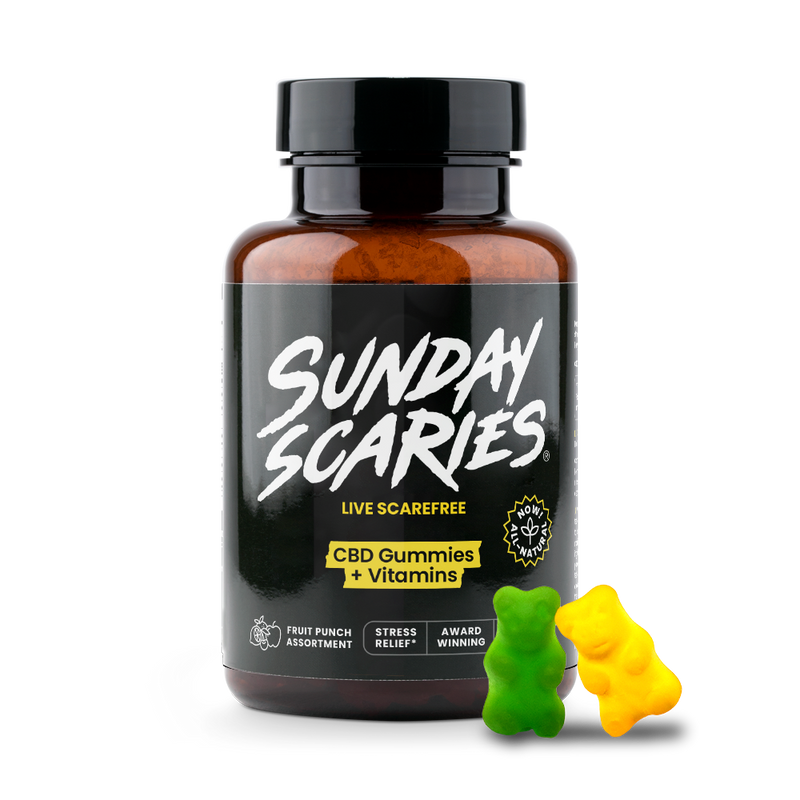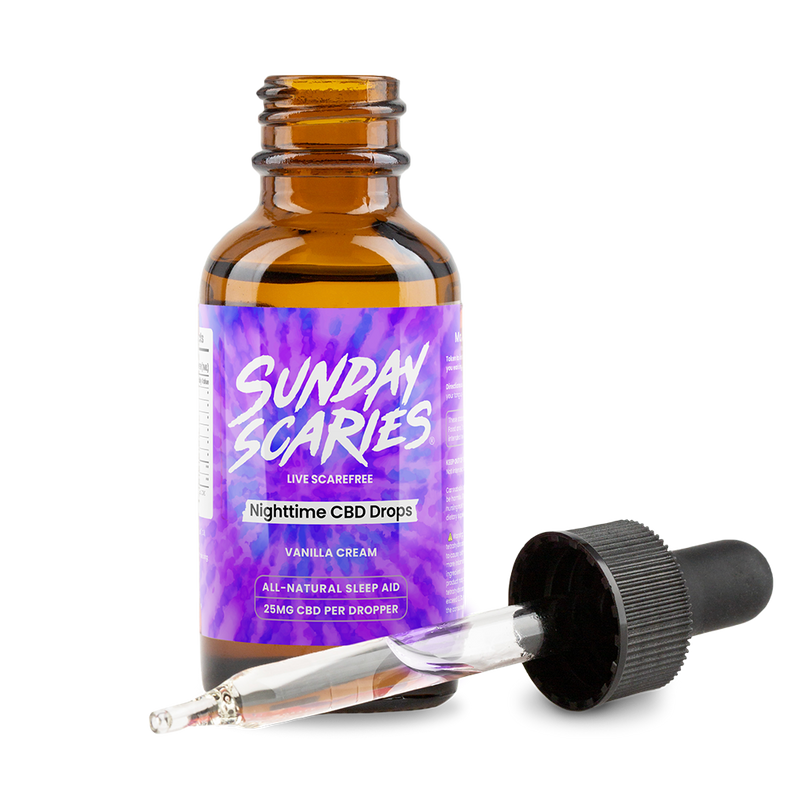
Does CBD Make You Tired? & How Does CBD Give You Energy?
CBD can make you tired, especially at higher doses (25mg or more), as it may have sedative effects that help improve sleep quality; however, lower doses (20mg or less) often promote wakefulness and alertness. Individual responses vary, so starting with a low dose is recommended to find the optimal effect.
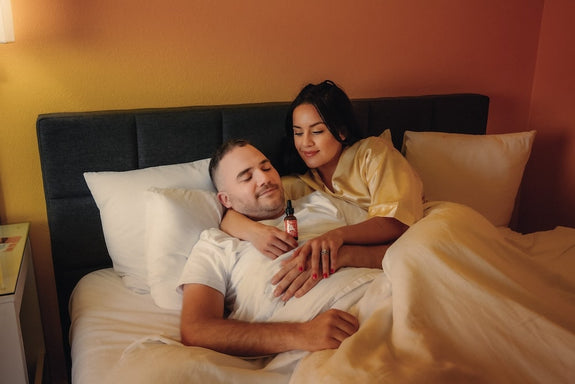
Many people ask if CBD will cause drowsiness or impact their energy. This blog aims to explore this query in detail, breaking down the science, user experiences, and expert opinions on the matter. By the end, you'll have a clear understanding of how CBD interacts with your body and whether it might affect your energy levels.
Key Takeaways
- CBD interacts with the endocannabinoid system to promote relaxation and improve sleep quality without directly causing daytime drowsiness.
- Dosage plays a crucial role in the effects of CBD on tiredness; higher doses may induce drowsiness while smaller doses can increase energy levels.
- Choosing high-quality CBD products and consulting with a healthcare professional is essential to avoid potential side effects and interactions with other medications.
Understanding CBD and Its Effects on Sleep and Energy
Understanding how CBD influences sleep, including sleep benefits, sleep disorders, effects on the sleep wake cycle and conditions like REM sleep behavior disorder, involves getting acquainted with the endocannabinoid system (ECS) and its connection to the central nervous system.
This complex network within our bodies regulates various functions, including sleep, mood, and appetite. The ECS comprises endocannabinoids, receptors, and enzymes, which work together to maintain bodily homeostasis.
CBD interacts with the ECS through cannabinoid receptors, particularly CB1 and CB2, found throughout the body, including the brain, organs, and tissues. Unlike THC, CBD doesn’t directly bind to these receptors. Instead, it may prevent endocannabinoids from being broken down, prolonging their effects and contributing to a balanced sleep cycle and overall health.
One of the remarkable properties of CBD is its ability to promote relaxation and reduce stress, which can significantly improve sleep quality and stabilize sleep patterns.
CBD collaborates with the hypothalamus to manage stress and normalize the sleep-wake rhythm, leading to a more harmonious sleep cycle. This calming effect sets the stage for deep and restful sleep, making CBD a promising natural sleep aid.
Additionally, CBD’s homeostatic properties are being studied on how they regulate emotions, pain, and sleep stability. By acting on the CB1 receptors, CBD may enhance sleep quality and address sleep disturbances, making it a potential valuable tool for those struggling with insomnia, irregular sleep patterns, or chronic pain. Although, further research needs to take place before these claims can become facts.
Does CBD Make You Tired?
The question of whether CBD makes you tired is a bit complex. For some individuals, CBD can induce feelings of relaxation and drowsiness, helping them unwind and prepare for sleep. However, bear in mind that CBD is not a sedative and does not directly induce sleepiness.
Instead, CBD works by promoting overall relaxation and balance, which can support better sleep without causing daytime drowsiness.
Individual responses to CBD can vary based on factors such as genetics, lifestyle, and dosage. While high doses of CBD may produce a sense of relaxation by slowing the breakdown of anandamide and increasing adenosine levels, it generally does not induce daytime sleepiness.
Thus, CBD can be an effective tool for promoting relaxation, improving sleep quality, and ensuring a good night’s sleep without making you feel tired during the day.
It all depends on your desired effects and the dosing, we'll dive into that in a bit.
Does CBD Give You Energy?
CBD itself can help promote energy by supporting mental clarity, reducing stress, and balancing the body's endocannabinoid system, which can make you feel more awake and focused.
While CBD isn't a stimulant like caffeine, it can indirectly boost energy by helping you feel less fatigued and more mentally sharp.
Many CBD products, like our CBD focus gummies, also include added energizing ingredients like Gotu Kola and natural caffeine to enhance these effects, giving you a clean, sustained lift without the jitters.
If you're looking for a CBD product to promote energy, try lower dosing (10-20mg) and look for products that have added ingredients to help boost high energy.
CBD and Fatigue: The Scientific Perspective
Scientific research on CBD is still in its early stages, but several studies have investigated its impact on sleep and fatigue. Here’s what the current science suggests:
1. CBD and Sleep Regulation:
-
Some studies suggest that CBD may help regulate sleep by addressing the root causes of poor sleep, such as anxiety, stress, and pain. A study published in The National Library of Medicine called: Cannabidiol in Anxiety and Sleep: A Large Case Series states that "Sleep scores improved within the first month in 48 patients (66.7%) but fluctuated over time. In this chart review, CBD was well tolerated in all but 3 patients. Conclusion: Cannabidiol may hold benefit for anxiety-related disorders."
2. CBD and Daytime Fatigue:
-
Contrary to inducing fatigue, some research indicates that CBD might help improve wakefulness and reduce daytime sleepiness. A study published in The National Library of Medicine called: Potential Effects of Cannabidiol as a Wake-Promoting Agent reviewed the effects of CBD on wakefulness and concluded that CBD might have the potential to increase energy and altertness. It states "Further complexity has been added to the understanding of CBD pharmacology since Nicholson et al. (2004) found that 15mg of CBD administered to young adults increased wakefulness (W) during sleeping time... suggesting that CBD behaves as a wake-promoting compound."
3. Dosage Matters:
-
The dosage of CBD plays a crucial role in its effects. Lower doses of CBD have been associated with increased alertness, while higher doses might have more sedative effects. This dual nature of CBD makes it a versatile tool for managing various conditions, but it also means users need to find their optimal dose. We'll get into how much CBD to use for a better night's sleep later in this article.
User Experiences: Does CBD Make You Tired?
User experiences with CBD can vary widely due to factors like dosage, individual body chemistry, and the specific product used. Here are some common themes from user reports:
CBD for Sleep Improvement:
Many users take CBD to improve sleep quality. They report that it helps them fall asleep faster and stay asleep longer. These users often take higher doses of CBD, which might have sedative properties.
Check out this review from a verified buyer:
"I've been a light bad sleeper for me entire life, and have tried everything from melatonin, to many other brands' CBD products, etc etc. Since taking Sunday Scaries I have been sleeping through the night (something I had truly given up on), haven't slept this well in years, and I'm only taking a half dose. It's just enough to help me stay asleep instead of waking up every couple hours. And unlike melatonin I don't wake up feeling foggy. Highly recommend."
-
Reviewer: Alexander T.
-
Product: Extra Strength CBD Gummies
CBD for Daytime Use:
On the other hand, some users find that CBD helps them stay alert and focused during the day. These individuals usually take lower doses of CBD, which might help reduce anxiety and improve concentration without causing drowsiness.
Check out this review from a verified buyer:
"These CBD Gummies are wonderful, they have been great to chill me out whenever I get amped up with work. I take them in the morning before I leave the house and by time I get to the office I'm as cool as a cucumber. I own my own business, which is very stressful, these have really helped me get through."
-
Reviewer: Meghan R.
-
Product: CBD Gummies
As you can see above, users are reporting different effects from the use of CBD edibles. Alexander T. uses them to achieve a restful night's sleep, while Megan R. uses them for other health benefits like stress relief and dealing with workplace burnout.
It all boils down to the CBD dosage. When taking CBD, if you have trouble falling asleep or want improved sleep overall, take 25mg or more per dose.
If you you want to stay alert while remedying your stress levels, take 20mg or less per dose.
Expert Opinions: What Do Professionals Say?
Cannabis plant experts have weighed in on the potential for CBD to cause tiredness. Here’s a summary of their insights:
Beau Schmitt, Co-founder of Sunday Scaries and Legalization Advocate
Beau explains that CBD has a balancing effect on the body. It can be both calming and alerting depending on the dose and individual response. He advises starting with a low dose and gradually increasing it to find the optimal effect.
"I use CBD for different use cases. Use case #1 is for improving my REM sleep since it has me fall asleep faster at night and keeps me slumbered throughout the night. Higher doses of CBD, 25-40mg, helps me achieve this. Traditional sleep medicine, like pharmaceuticals, give me unwanted side effects. I also wake up feeling groggy after taking melatonin. Use case #2 is for dealing with high stress at work. I need to chill out, but I also want to maintain my focus and concentration. Lower doses of CBD, 10-20mg, helps me achieve this."
Dr. Ethan Russo, Neurologist and Cannabis Researcher:
Dr. Russo emphasizes the importance of understanding the biphasic effects of CBD, where low and high doses can have opposite effects. He advocates for personalized dosing to achieve the desired outcome.
"CBD has somewhere in the neighborhood of 30 mechanisms of action. Fortunately, all of these seem to be beneficial... in low-to-moderate doses, CBD is stimulating and anti-inflammatory and reduces anxiety...It’s not a miracle, but it is amazingly therapeutic for a wide variety of conditions."
Factors Influencing CBD's Effects on Tiredness
Several factors can influence whether CBD makes you feel tired or not:
1. Dosage:
-
As mentioned earlier, the dosage of CBD is a critical factor. Lower doses are generally associated with increased alertness, while higher doses might promote sleep.
2. Time of Use:
-
The timing of CBD consumption can also play a role. Taking CBD in the morning might have a different effect compared to taking it before bedtime.
3. Product Type:
-
The type of CBD product used can influence its effects. Full-spectrum CBD products contain other cannabinoids and terpenes that might have synergistic effects, whereas CBD isolate contains only CBD.
4. Individual Differences:
-
Personal factors such as age, body weight, metabolism, and overall health can affect how CBD impacts you.
Types of CBD Products for Better Sleep
Various options are available for selecting CBD products for enhanced sleep, including full spectrum, broad spectrum, and CBD isolate. Each type offers varying levels of effectiveness due to the entourage effect.
Full Spectrum CBD
Full spectrum CBD contains a variety of cannabinoids, terpenes, and flavonoids, including THC (not more than 0.3%), which work together to create the entourage effect. This combination enhances CBD’s effectiveness for sleep by leveraging the synergistic benefits of the whole plant.
The entourage effect can significantly improve sleep quality by combining CBD with other naturally-occurring cannabinoids and terpenes found in the cannabis plant. Additionally, some studies suggest that CBD may reduce the psychoactive effects of THC, offering a potential advantage over THC-heavy sleep aids. Research is currently underway to study whether this combination can help sleep apnea or not, particularly obstructive sleep apnea.
Broad Spectrum CBD
Broad spectrum CBD contains a wide range of cannabinoids, terpenes, and flavonoids found in hemp, while THC is removed or reduced to undetectable levels. This makes it a popular choice for those seeking the benefits of multiple hemp compounds without the presence of THC.
This makes it suitable for those seeking the benefits of CBD without the presence of THC, while still retaining other beneficial plant compounds.
CBD Isolate
CBD isolate is the purest form of CBD, containing isolated CBD without any other hemp compounds or cannabinoids, offering a 0% THC option. This makes it ideal for individuals who want to avoid THC entirely, especially those who may undergo drug testing.
-
For more information, check out our resource: Full Spectrum vs. Broad Spectrum vs. Isolate.
The Best CBD Oil to Make you Tired
The best CBD oil to help you fall asleep is CBD sleep oil, which contains full-spectrum CBD, and is enhanced with CBN and other active sleep agents.
-
For more information, check out our resource: What is CBN?
The Role of Additional Ingredients in CBD Products
Combining traditional herbs with CBD can enhance its sleep-promoting effects. Ingredients like valerian root, passionflower, and chamomile are commonly included in CBD sleep products for their natural sleep-inducing properties.
Other natural ingredients such as cascade hops and lemon balm are also used in CBD sleep aids to promote relaxation and improve sleep quality.
By incorporating these herbs, CBD products can offer a more comprehensive approach to achieving restful sleep.
Comparing CBD to Conventional Sleep Aids
CBD is regarded as a safer, non-toxic, and non-addictive substitute for conventional sleep medications. Unlike many conventional sleep aids, CBD does not possess psychoactive properties, making it a non-intoxicating option for promoting relaxation and better sleep.
While traditional sleep medications may lead to dependency and have various side effects, CBD promotes overall balance within the body and supports a healthier lifestyle.
By alleviating stress, CBD can help achieve better sleep quality without the risks associated with prescription sleep medications.
Tips for Choosing High-Quality CBD Products
In choosing CBD products for sleep, ensure to check for third-party lab testing, organic certification, and correct labeling. Reputable CBD companies should provide a certificate of analysis (COA) to ensure their products are free of harmful contaminants and accurately labeled.
Additionally, purchasing CBD products from credible online brands, pharmacies, state-licensed cannabis dispensaries, or trusted manufacturers can help ensure quality and reliability.
Avoid buying CBD from gas stations, smoke shops, or third-party online retailers like Amazon due to potential quality issues.
Talking to Your Doctor About CBD Usage
Before embarking on a CBD regimen, it’s crucial to seek advice from a healthcare professional, particularly if you’re on other medications.
CBD can interact with certain medications, so discussing its use with your doctor can help ensure safe and effective use without adverse interactions.
Summary
In summary, CBD offers a promising natural alternative for improving sleep quality by promoting relaxation and reducing stress.
Understanding how CBD interacts with the ECS, the importance of dosage, and the different types of CBD products available can help you make informed decisions about incorporating CBD into your sleep routine.
As research continues to uncover the benefits and potential side effects of CBD, it’s important to choose high-quality products and consult with healthcare professionals. With the right approach, CBD can be a valuable tool in achieving better sleep and overall well-being.
Frequently Asked Questions
How does CBD interact with the endocannabinoid system?
CBD interacts with the endocannabinoid system by influencing CB1 and CB2 receptors, which are located throughout the body and help regulate various bodily functions, such as sleep and mood.
What is the difference between full spectrum, broad spectrum, and CBD isolate?
Full spectrum CBD contains THC along with other cannabinoids, broad spectrum CBD has most cannabinoids and terpenes but no THC, and CBD isolate is pure CBD without any other hemp compounds. Choose based on your preferences and needs.
What are the potential side effects of using CBD for sleep?
To minimize potential side effects of using CBD for sleep, consult a doctor before starting a CBD regimen to avoid interactions with other medications. Keep an eye out for side effects such as dry mouth, diarrhea, reduced appetite, drowsiness, and fatigue.
How should I choose high-quality CBD products?
To choose high-quality CBD products, look for third-party lab testing, organic certification, and accurate labeling. It's also important to purchase from reputable sources like pharmacies or state-licensed dispensaries to ensure quality and reliability.
Does THC make you tired?
THC can make you tired, especially in higher doses. Unlike CBD oil, it has sedative properties that promote relaxation and sleep. THC gummies, THC gummies for sleep, and Delta-9 gummies often lead to drowsiness and may help with sleep-related issues.

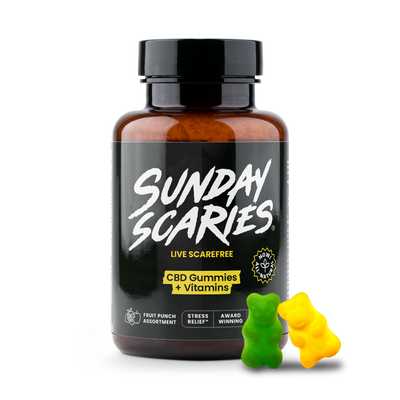 CBD Gummies
Stress Relief
CBD Gummies
Stress Relief
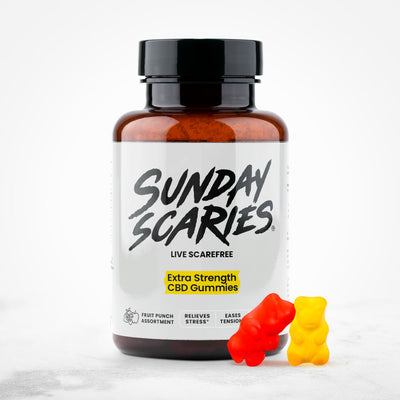 Extra Strength CBD Gummies
Stress Relief
Extra Strength CBD Gummies
Stress Relief
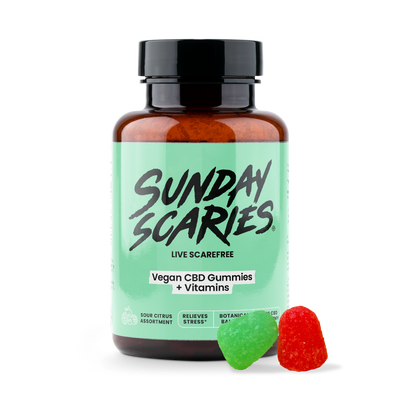 Vegan CBD Gummies
Stress Relief
Vegan CBD Gummies
Stress Relief
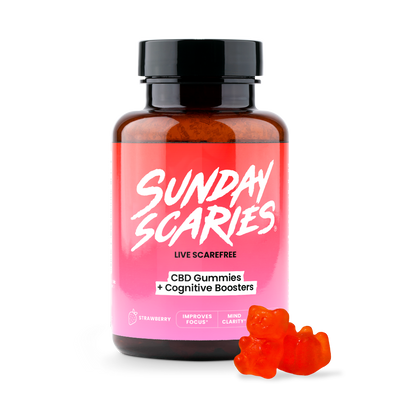 CBD Gummies for Focus
Focus Boost
CBD Gummies for Focus
Focus Boost
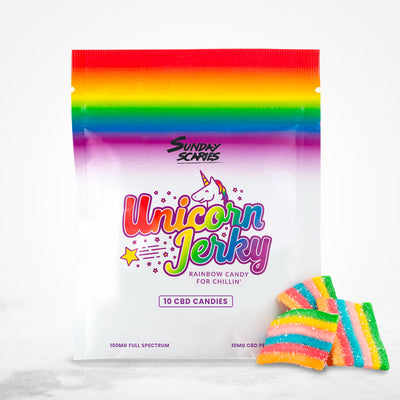 CBD Candy
Mood Lift
CBD Candy
Mood Lift
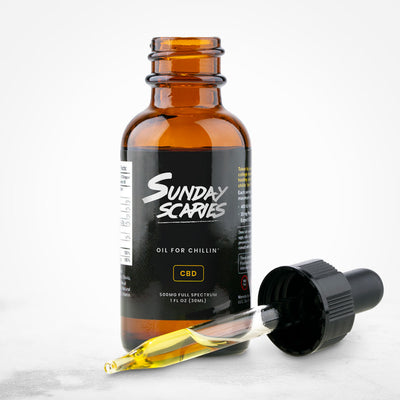 CBD Daytime Oil
Stress Relief
CBD Daytime Oil
Stress Relief
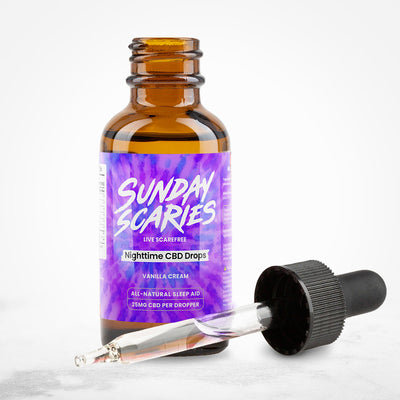 CBD Sleep Oil
Sleep Aid
CBD Sleep Oil
Sleep Aid
 CBD Dog Treats
Stress Relief
CBD Dog Treats
Stress Relief
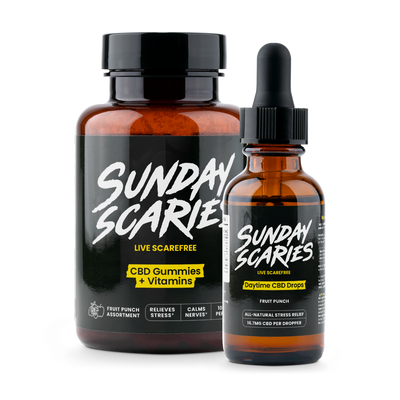 Side Piece Bundle
Stress Relief
Side Piece Bundle
Stress Relief
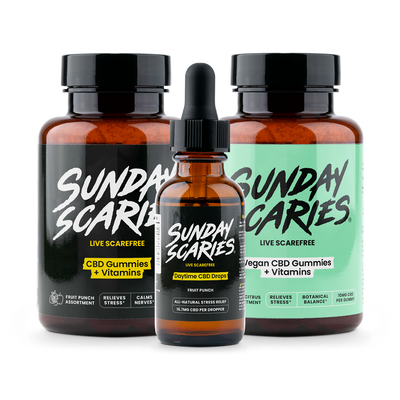 Rando Bundle
Stress Relief
Rando Bundle
Stress Relief
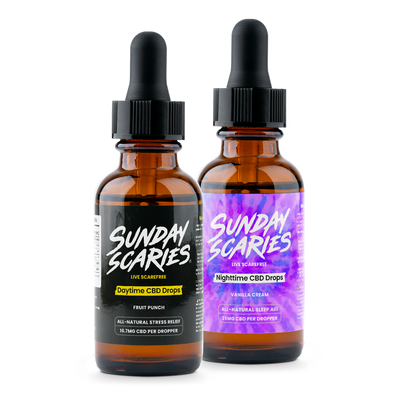 Sunrise & Sunset CBD Oil Bundle
Stress Relief
Sunrise & Sunset CBD Oil Bundle
Stress Relief
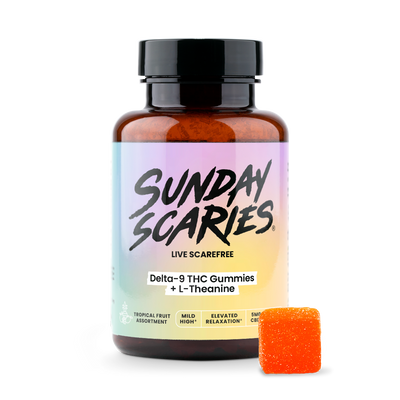 5mg Delta-9 Gummies
Euphoria
5mg Delta-9 Gummies
Euphoria
 10mg Delta-9 Gummies
Euphoria
10mg Delta-9 Gummies
Euphoria
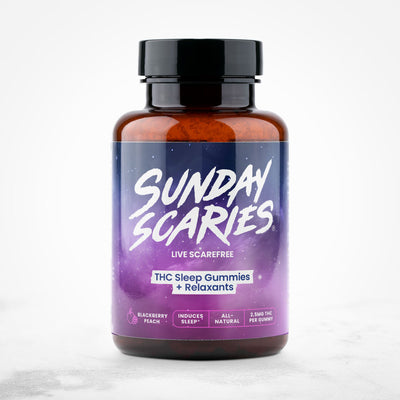 THC Gummies for Sleep
Sleep Aid
THC Gummies for Sleep
Sleep Aid
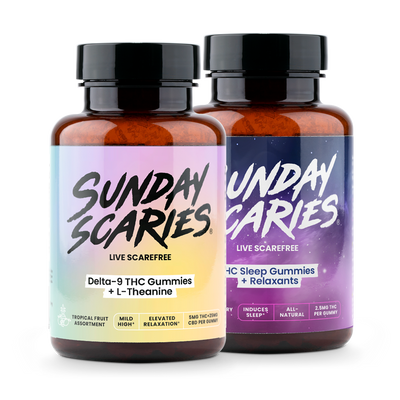 Day & Night THC Gummies Bundle
Stress Relief
Day & Night THC Gummies Bundle
Stress Relief
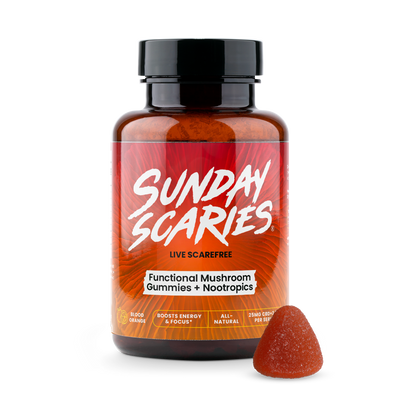 Mushroom Gummies
Focus Boost
Mushroom Gummies
Focus Boost
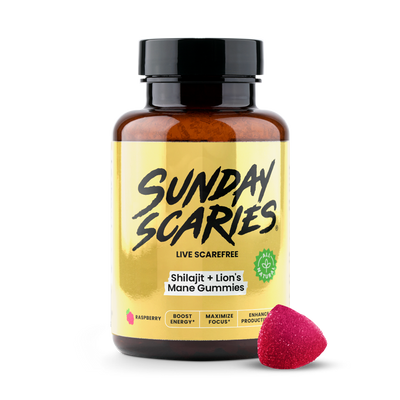 Shilajit Gummies
Focus Boost
Shilajit Gummies
Focus Boost
 Sunday Scaries Hat
Sunday Scaries Hat
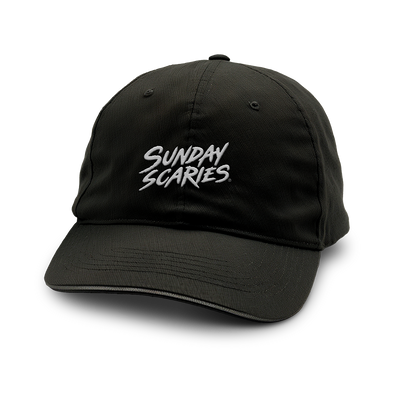 Sunday Scaries Dad Hat
Sunday Scaries Dad Hat
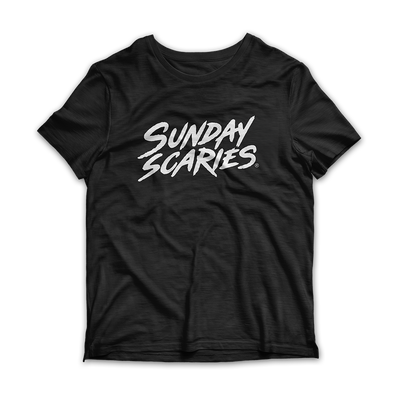 Sunday Scaries T-Shirt
Sunday Scaries T-Shirt
 Sunday Scaries Pocket Tee
Sunday Scaries Pocket Tee
 Sunday Scaries Tank Top
Sunday Scaries Tank Top
 Sunday Scaries Sweatshirt
Sunday Scaries Sweatshirt
 Sunday Scaries Blanket Jacket
Sunday Scaries Blanket Jacket
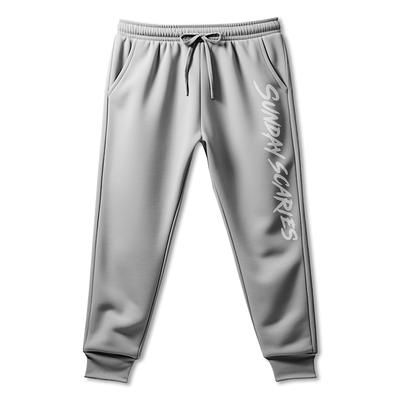 Sunday Scaries Sweatpants
Sunday Scaries Sweatpants

